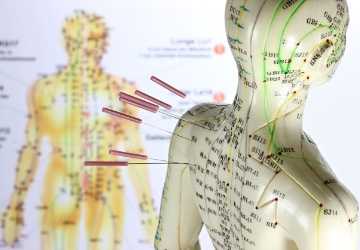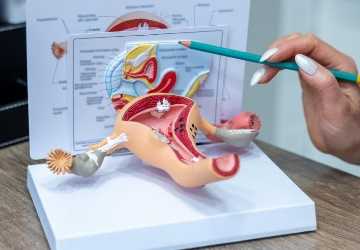Who Should Consider Acupuncture for Pain Relief?
Acupuncture is an ancient technique based in Eastern medicine that involves inserting sterile needles into specific points on the body to relieve pain and improve overall health. Although acupuncture has recently gained popularity in the West, it has been a component of Traditional Chinese Medicine (TCM) for thousands of years. Their integration into modern healthcare highlights their potential as a growing field of integrative health that focuses on treating the whole person—physical, emotional, spiritual, and environmental. This article describes the pain conditions that acupuncture treats, who benefits from acupuncture, and what acupuncture feels like.

What Conditions Does Acupuncture Help?
Acupuncture is often used to relieve pain while improving overall health. It can help treat a wide range of conditions, including:
• Chronic pain: migraines, neck and back pain, tendinitis, sciatica, carpal tunnel syndrome, fibromyalgia, and rheumatoid arthritis.
• Digestive disorders: irritable bowel syndrome, colitis, gastritis, and constipation.
• Urinary and reproductive disorders: menstrual problems, irregular or heavy periods, infertility, and menopausal symptoms.
• Mental and emotional disorders: depression, anxiety, stress, and insomnia.
• Symptom management of chemotherapy and radiation side effects: fatigue, general pain, dry mouth, peripheral neuropathy, nausea, and vomiting.
• Seasonal allergies
• High blood pressure
• Addictions: nicotine, alcohol, and drugs.
• Weight management: Combined with diet and exercise, acupuncture can help treat overweight or obesity.
Who Is It for?
Who benefits from acupuncture? Acupuncture is suitable for many people, regardless of age or specific health conditions. It can help with chronic pain and health issues, and can help those who want to stay healthy and prevent disease.
1. People With Chronic Pain
Acupuncture can treat people with chronic pain such as arthritis, back pain, neck pain, and migraines. This ancient practice stimulates the body's natural pain-relieving chemicals, improves blood flow to the affected area, promotes healing, and relieves discomfort. Benefits of acupuncture for chronic pain include:
• Medical conditions: arthritis, back pain, neck pain, migraines.
• Benefits: pain relief, improved function, improved circulation.
2. People With Stress and Anxiety
Acupuncture is a natural technique used to improve relaxation and balance in people who are stressed or anxious. By targeting specific acupuncture points, acupuncture can reduce stress hormones and improve overall mental health, making it an effective treatment for anxiety disorders and stress-related symptoms. Acupuncture can help:
• Conditions: Generalized anxiety disorder, stress-related symptoms.
• Benefits: Reduce stress, balance energy, improve mental health.
3. People With Sleep Disorders
People with sleep disorders, including insomnia, restless sleep, and sleep apnea, may benefit from acupuncture. The therapy helps regulate sleep patterns by calming the nervous system and promoting relaxation, thereby improving sleep quality. Here's why and why:
• Medical conditions: Insomnia, restless sleep, sleep apnea.
• Benefits: Regulate sleep patterns, increase relaxation, improve sleep quality.
4. People Seeking Relief From Digestive Issues
Acupuncture can also help relieve chronic pain in people with digestive issues such as IBS (irritable bowel syndrome), acid reflux, and constipation. By balancing the digestive system and improving its function, acupuncture can relieve symptoms and improve overall digestive health. Acupuncture Treatment:
• Medical Conditions: Irritable Bowel Syndrome (IBS), Acid Reflux, Constipation.
• Benefits: Improved Digestive Function, Relieve Symptoms, Balance Digestive System.
5. People With Respiratory Conditions
For people with respiratory conditions such as allergies, asthma, and sinus infections, acupuncture can provide significant relief. Acupuncture can improve lung function and reduce the frequency and intensity of symptoms by reducing inflammation and boosting the immune system. Here are the areas where it can improve:
• Medical Conditions: Allergies, Asthma, Sinusitis.
• Benefits: Reduced Inflammation, Improved Respiratory Function, Boosted Immune System.
6. Women With Reproductive Health Issues
Acupuncture can be especially helpful for women with menstrual problems, infertility, or menopausal symptoms. The treatment can regulate hormone levels, relieve pain, and improve reproductive health, providing a natural alternative to traditional treatments. For this reason:
• Conditions: Menstrual problems, infertility, menopausal symptoms.
• Benefits: Balanced hormones, relieved pain, improved reproductive health.

7. Individuals Recovering From Surgery or Injury
Acupuncture can play an important role in recovery after surgery or injury. It can speed up recovery, relieve pain, and improve mobility by increasing blood flow and reducing inflammation. Choose acupuncture because it can treat:
• Medical conditions: postoperative pain, recovery from injury.
• Benefits: speed up recovery, reduce pain, improve mobility.
8. People Undergoing Cancer Treatment
Cancer patients often suffer from side effects such as nausea and fatigue. Acupuncture can help relieve these side effects and improve overall quality of life during treatment. Here's how it works:
• Conditions: Side effects of chemotherapy and radiation.
• Benefits: relieve nausea and fatigue, improve quality of life.
9. Athletes and Active People
Athletes and active people who struggle with injuries and muscle pain or want to improve their performance may find acupuncture helpful. It supports recovery, reduces muscle tension, and improves performance by improving blood circulation and relieving pain. Acupuncture helps with:
• Conditions: sports injuries, muscle soreness, poor performance.
• Benefits: faster recovery, less muscle tension, better performance.
Although acupuncture can provide a variety of health benefits, it's important to consult a doctor before starting treatment. They can help you determine if acupuncture meets your needs and conditions and provide you with the most effective and safe treatment.
How Does It Feel?
Acupuncture involves inserting fine needles into specific areas of the skin. This process stimulates nerves, muscles, and connective tissue, increasing blood flow and triggering the release of natural painkillers in the body, such as endorphins. Patients may feel a slight tingling, itching, or no sensation at all when the needles are inserted. Sessions typically last 45 to 60 minutes, and patients often feel relaxed or even fall asleep during the treatment.
Many treatments also include instruction in acupressure, a technique in which the patient applies pressure to specific areas of the body with their fingers. This should only be done under the guidance of a trained and licensed acupuncturist.
Does It Work?
Acupuncture is known for its simple yet effective methods, and if used correctly, it does not cause any harm. It offers an alternative to chemical medications and invasive procedures, making it an attractive option for those seeking natural treatments for chronic or acute conditions. With growing concerns about the side effects and risks of medications, interest in acupuncture as a less invasive but effective treatment has grown.
Conclusion
Acupuncture offers a holistic, all-natural approach to treating pain and improving overall health. Whether you are recovering from surgery, managing chronic pain, or seeking other treatments to improve your overall health, acupuncture can help you find the support and relief you need. As with any treatment, it is important to consult with your doctor to ensure that treatment is the best choice for your individual medical needs.





